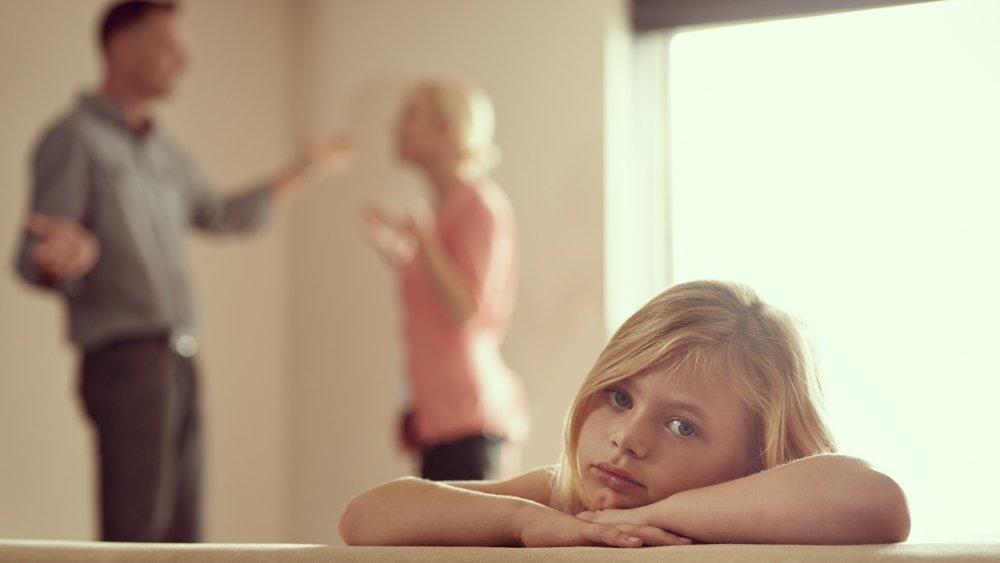
Divorce, separation of parents: what do children feel?
Le divorce ou la séparation des parents est un grand chamboulement dans la vie de l’enfant. Une multitude de sentiments vont le traverser, avec plus ou moins d'intensité, sur une plus ou moins longue durée. Or, les émotions de l’enfant ne sont pas faciles à décrypter. Selon son âge, il peut lui-même avoir du mal à les comprendre et à les exprimer. Le psychiatre Michael Larrar nous explique les différents sentiments que peut éprouver un enfant dont les parents divorcent, notamment avant l’âge de six ans, et comment accompagner au mieux son enfant.
Fear of abandonment, a recurring feeling
In children under the age of six, the most frequent and powerful feeling is abandonment anxiety.The psychiatrist explains: "There will be anxieties of abandonment, especially for the youngest, who are afraid of being abandoned by the parents or one of the two parents".Since his parents separate, this can indeed create in children the fear that the latter separate from him at the same time.Indeed, before the age of six, "they do not make the difference between the different loves.Between 4 and 6 years old, the child is in an Oedipal age so he thinks they have a love love for the parent, "comments the expert.According to the child, family love and love love is the same, and will therefore think that it is possible that his parents no longer love him, and abandon him.This anxiety can manifest in different ways.For example, the child can refuse to go to school or develop night anxieties.In short, he has difficulty separating from his parents.When they grow up, this anxiety fades from itself in geranl, because their intellect allows them to discern these different loves.But in some, this trauma can remain anchored and invade their future relationships.To avoid these anxieties, Doctor Larrar gives some advice: "You have to reassure the child fairly quickly when the separation is announced.It must be told that he will continue to see his father and mother.It is important to explain to him that we are not going to divorce him, that it is the couple who divorces ".He continues: "We must give him explanations that make sense.He cannot believe us about it.It must therefore be told that it is not the same love, that love for a child is unconditional ".
There’s is no room for Physical Discipline in Any Home!It’s Degrading!Violence violence violence!There are many… https: // t.CO/U8O82HDHM8
— Zarina Walele Wed Sep 18 09:33:40 +0000 2019
Guilt, frequent during the separation of parents
This feeling covers almost all ages of child psychiatry.The child will think that it is his fault that the separation of his parents is the result of his actions.The specialist explains: "The child has the impression of being the center of the world.In the same way, he will think to be at the origin of the divorce.He will feel guilty of his aggressive impulses: sometimes I want dad only for me and that's what happens ".This feeling can also be reinforced by the fact that many parental arguments are related to him, if he is the cause of a baby clash.And that, the child knows it.The psychiatrist specifies: "The child tends to think that he is at the center of his family and thinks that everything that happens is a punishment".In order to make this feeling of guilt disappear, he advises to tell your child very quickly that divorce has nothing to do with him: "What leads to divorce is disenchantment and very deep disagreements within thecouple.Remember that even if you argued because of him, this is not the source of divorce.»
The child's anger to tame

It is almost systematic that the child feels anger at the parents who divorce."But it often goes into the background, because they will first be sad and anxious," adds the psychiatrist.Nevertheless, in certain situations, anger can be very powerful.This is the case when parents bring the child into the couple's privacy.For example, if one of the two parents is deceived, it is necessary that the latter does not express his anger with his child.This can undoubtedly affect the child's relationship with the parent at the origin of infidelity: the child is quite simplistic in conflicts."If he knows that a parent has deceived the other, he will take sides.This is why children should not be aware of these things.This could tarnish his relationship to his parent, although infidel.However, infidelity only looks at the couple's relationship, "he explains. S’il l’apprend plus tard, en fin d’adolescence, cela aura moins d’impact, puisqu’il sera plus à même de “comprendre», et de prendre plus de recul.
A feeling of relief, sometimes
When children are older, towards adolescence, parents' divorce can be welcomed with some joy or at least, relief.This is the case when there is domestic violence for example, or attending too much tensions.Furthermore, in some cases, a toddler sometimes goes without wanting to rejoice to have his parent just for him.She: “In the little ones, at the Oedipal Age, around six years old, there can be a little satisfaction, because he will have his parent for himself alone. Mais c’est assez inconscient».
How to decipher my child's emotions?
It is not always easy to decipher all the anxieties of his children.According to Michael Larrar, before the age of six, mental pain can manifest in two ways:
However, these behaviors do not indicate what types of anxieties it is.It is a way for the child to show that something is wrong and it's up to you to spot these behaviors to exchange with him. Michael Larrar conclut : “Toutes ces émotions, si elles ne sont pas arrangées, vont impacter leur évolution, le développement de l’enfant».For him, if the divorce is well managed, children can rely after a year.But if negative emotions are too present and they persist, do not hesitate to consult a specialist.







